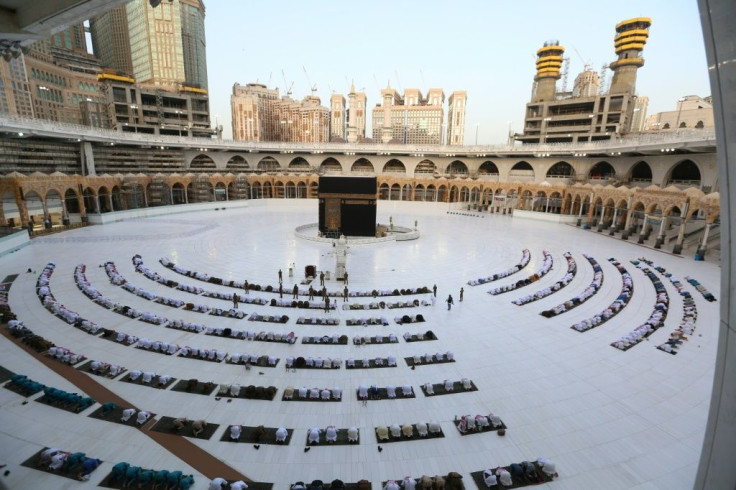What Is Ramadan And Why Do Muslims Have To Fast During This Period?
KEY POINTS
- Ramadan is the ninth month of the Islamic calendar and is believed to be the time when the Qur'an was given to the Prophet Mohammed
- Fasting, or abstaining from food or drinks, is perceived by Muslims as a means of connecting with God spiritually
- The end of Ramadan or Eid al-Fitr will fall on May 13 this year
Ramadan, also known as the ninth month of the Islamic calendar, is seen as one of the holiest months of the year for Muslims as it is believed to be the time when the Qur'an, or the holy scripture, was given to the Islamic Prophet Muhammed/ Mohammed.
The beginning of Ramadan differs each year, as it is based on the lunar calendar, which consists of a 12-month-year with approximately 354 days. Because the lunar year is 11 to 12 days shorter than the solar year, each lunar month moves about 11 days each year. This year, the start of Ramadan will occur on the evening of April 12.
During the whole month of Ramadan, followers of Islam observe the event by fasting from food and drinks during the sunlit hours (often lasting from 11-16 hours a day). Fasting, according to the Islamic Networks Group, is a means for Muslims to draw themselves closer to God. It serves spiritual and social purposes, including being reminded of human frailty and one's dependence on God. For Muslims, experiencing thirst and hunger is a good way to empathize and develop compassion for the poor and needy.
Before fasting each day, Muslims will begin with a pre-fast meal called "suhur," followed by the "fajr," or the first prayer of the day. At dusk, Muslims will celebrate with a meal known as "iftar," which means "breaking the fast." This meal is often shared with family and friends, according to ABC News.
Followers of Islam are required to observe fasting once they have reached puberty. In fact, as early as the age of seven, Muslim children are expected to begin performing limited or symbolic fasting such as fasting on weekends or half-days. This practice would prepare them for the month-long fasting they will be doing for the succeeding years until they reach adulthood and observe the tradition more fastidiously.
Those who will be experiencing hardships during fasting, however, are exempted from observing the Islamic practice. This includes women who are pregnant or are currently nursing, those who are menstruating, and older people who are too weak to fast. People with disabilities or illnesses are also exempted from fasting.
At the end of Ramadan, Muslims will then celebrate the end of their fasting with "Eid al-Fitr" or the "Festival of the Breaking of the Fast." On this day, children typically receive presents and a community celebration is held with plenty of food and games. In 2021, Eid al-Fitr will occur on May 13.

© Copyright IBTimes 2025. All rights reserved.





















